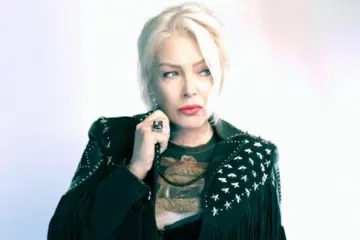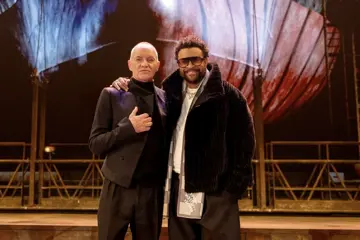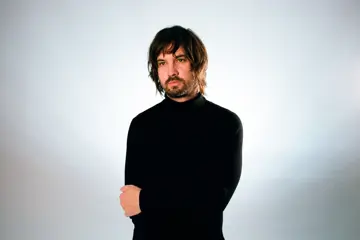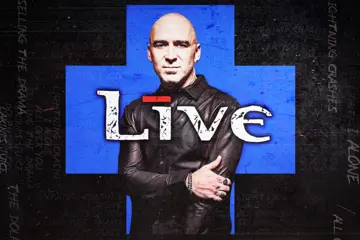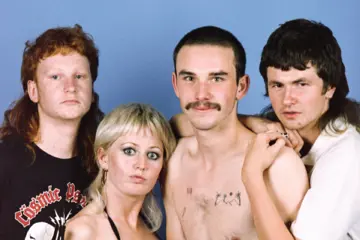Orpheus and Eurydice are two characters who have been made increasingly popular in recent years through contemporary retellings – such as in these two Brisbane Festival sister productions, Orpheus and Eurydice.
Both productions begin with pop music playing softly as the audience files into a small well-lit theatre, with seating set up on both sides of a narrow stage, before the performers introduce the audience to the characters and the origins of the work. Some dialogue and songs are repeated in both plays, but where Orpheus is acoustic pop-rock, Eurydice is electro-pop with a touch of anarchist punk.
The dialogue in Orpheus, performed by Tom Figgins as spoken word poetry, has a musicality to it. As the seating is divided in two, it can be difficult to hear Figgins speak when he faces one side of the audience. However, the inflection of his voice, the fast pace with which he delivers his lines, and Phil Grainger's accompanying music keeps you engaged.
Figgins’ poetic dialogue and Grainger's music blend well to convey emotion through tempo, vocal inflection and movement. There is no detailed choreography to accompany the sound, but slow swaggering from one side of the stage to the other and Figgins’ use of hand movement to emphasise certain lines keeps the performance moving.
Don't miss a beat with our FREE daily newsletter
The fourth wall and the Western concept of time does not factor into either play, but this is most prominent in Orpheus, where the audience is thrown between Dave (the play's modernisation of Orpheus) celebrating his 30th birthday and "an old man decades in the future". The audience is invited to sing along with Grainger as he performs Dancing In The Dark by Bruce Springsteen, among other well-known hits and original songs.
The stage is well-lit with fairy lights and yellow lights hanging in the canopy above the stage. The canopy lights change to blue, purple, red, orange, yellow and green in Orpheus when Dave and Eurydice first meet and a colourblind Dave sees colour for the first time. The light reverts to its original setting when Eurydice dies, an event signalled from the very beginning of the play.
Where Orpheus is a tale of losing a once-in-a-lifetime love, Eurydice is about learning to love – and more importantly, live – again. Yoshika Colwell plays the secondary characters in the story and bounces off Louise Williams' Eurydice vibrantly. Grainger’s music acts as an addition or a disruption to the flow of the performance, depending on the mood. The music charges the atmosphere until the audience is vibrating in their seats, and leaves them speechless whenever the music is abruptly stopped. Lighting is used similarly, with light changes becoming harsher in more emotionally charged scenes.
The voice of the characters is never lost due to the use of microphones. When microphones are not in use, both Colwell and Williams project their voices with clarity. However, the poetic dialogue could have been made more prominent with a more pronounced, consistent rhythm and rhyme. This could also be due to Eurydice’s extroverted nature – her voice is often raised whether as her five-year-old self in a Superman costume, screaming, “Never gonna do what you say!” to her mother Ceres, or as an older Eurydice confronting her first love, Aristaeus.
Eurydice fills the narrow stage, with three boxes adding a second tier to the performance. Williams and Colwell move around the stage, engaging with one another and with the audience. When they change pace and make direct eye contact with each other as they stand at either end of the stage, they fill the empty space with an electric intimacy.
While Orpheus provides a deeply moving retelling of a classic tale, Eurydice gives voice to the canonically passive Eurydice. Whether you choose to see both of these shows or just the one, these modern adaptations of a much-loved myth are sure to have you singing to the rafters.








